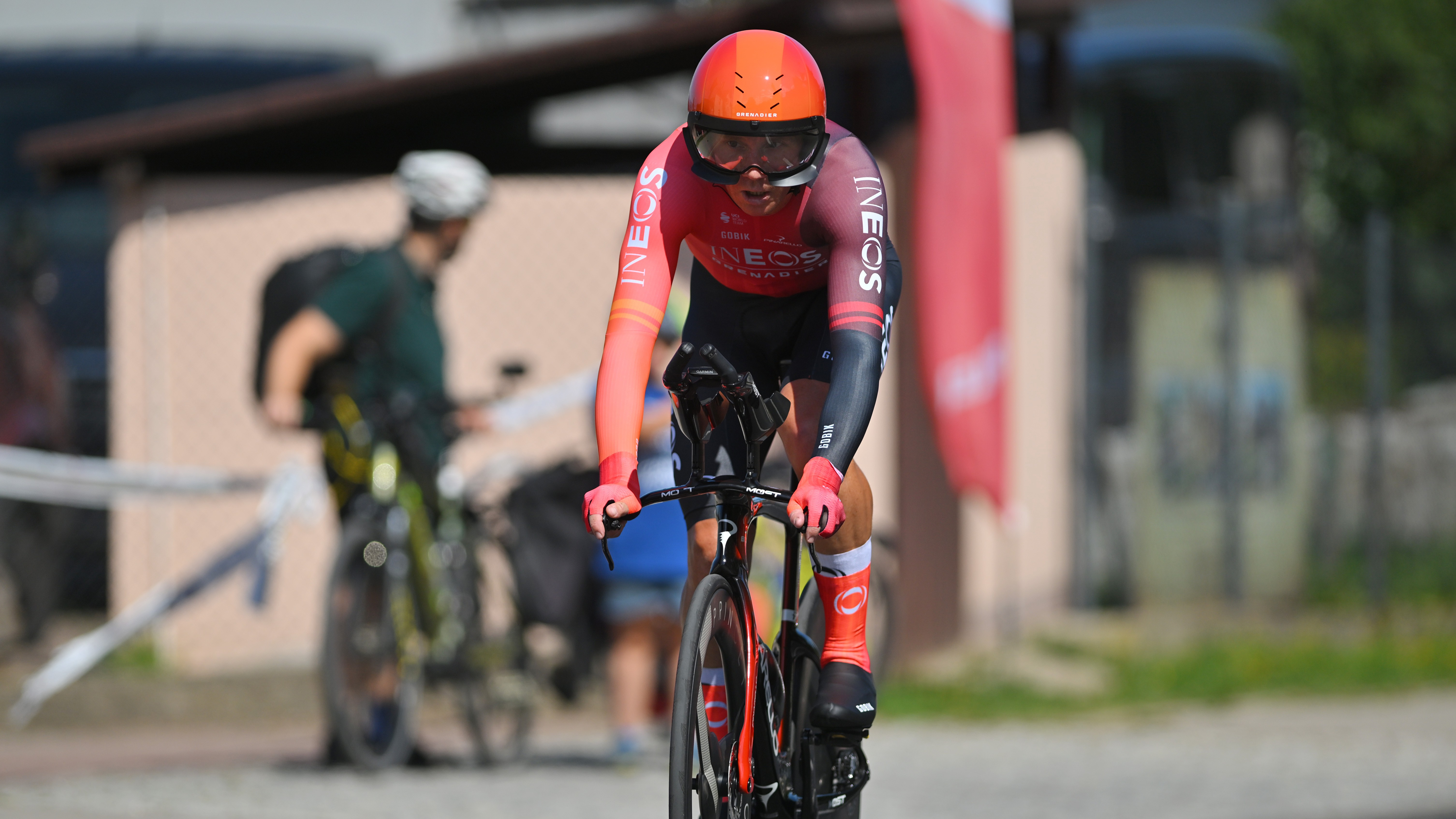
Australian former WorldTour cyclist and professional triathlete Cameron Wurf clocked the fastest Ironman bike split in history at Ironman Texas at the weekend. The event's full name is (deep breath) the Memorial Hermann Ironman Texas North American Championship, and it marks the fourth round of the Ironman Pro Series.
Within it, the bike leg is 180 kilometres (112 miles) long, and Wurf rattled off the bike leg in 3:53:32, with an average speed of 46.2km/h (28.7mph), taking 61 seconds off the previous record held by Robert Kallin, as reported on by bestriathletes.com.
That’s rapid whichever way you slice it. Wurf then took a little over two minutes for his bike-to-run transition before running a 2:50 marathon to finish the race. Wurf faded a little on the run, according to his Strava run title 'Blowing up like a cheap watch' and finished in 8th place, around 16 minutes behind eventual winner Kristian Blummenfelt.
Post race, Wurf gave an interview to The Feed, a US-based sports nutrition website, which you can watch via the brand's Instagram account or embedded below.
He broke down his frankly bonkers fuelling strategy that helped him produce a blistering bike leg, but also kept him on track for the duration of the event. The headline here is that Wurf consumed around 200 grams of carbohydrates per hour on the bike, a figure well above the average of around 120 grams we hear quoted for pro riders, and above what is considered the ceiling generally at the moment as pro rider fuelling advances.
200 grams per hour is the highest amount we have heard of an athlete consuming or coming out and stating directly. Wurf also consumed some large amounts of sodium in the breakdown, which we look at below.
High levels of carbohydrates and sodium were a clear focus for Wurf's bike leg and the event overall. It looks like the temperature ranged from around 20- 30C / 68-86F which must have dictated athlete fuelling strategies.
The Australian, who raced on the road for Ineos-Grenadiers between 2020 and 2024, listed a few different products when discussing his race nutrition.
It's common for athletes to split fuelling and carb intake between bottles and gels, and it sounds like Wurf split things between hydration and fuelling specifically, though there are products he used that aim to cover both bases. He states he got through 28 gels for the 112-mile ride, since he completed the bike leg in a little under four hours, split evenly, that's a crazy seven gels per hour, or one every eight minutes. He mentions using Powerbar and Amacx gels, which have 26g and 30g of carbs per gel respectively. How many of each gel he ate is unconfirmed, but he worked it out at around 900g total, and a little over 200g of carbs per hour on the bike.
Riders and triathletes consume far more carbohydrates per hour than was previously considered the norm, and the results and performances seem to speak for themselves. Generally, we hear of 120 - 140 grams being considered about the limit of what the body can absorb and process per hour, but this shows athletes are clearly pushing that figure. There must be other athletes consuming similar amounts to maximise performance. The specific demands of an Ironman event also require a huge carbohydrate intake, especially given that little, if anything at all, can be consumed during the swim prior.
The race was run off under the Texan sun, and sodium seems to have been a huge part of Wurf's nutrition strategy. Sodium can aid fluid retention and maintain muscular function. A sodium deficit, especially in a more extreme event like an Ironman, could also ultimately lead to some quite serious consequences. Athletes can work out their own sodium requirements for events and use wearable tech like the Flowbio or Nix sensors to monitor this.
In the video, Wurf explains he used Mortal and Momentous products in his bottles. Wurf consumed 1500mg of sodium per hour in bottles, with his gels also having 200mg of sodium per gel. We worked that out as 11600mg of sodium, a number which is almost as unheard of as the carb intake above.
Wurf broke new ground on the way to setting his world record, which highlights the direction of travel when it comes to athletes at the pointy end fuelling. But as Wurf said, "you need a fair bit of fuel if you're gonna ride like that."







